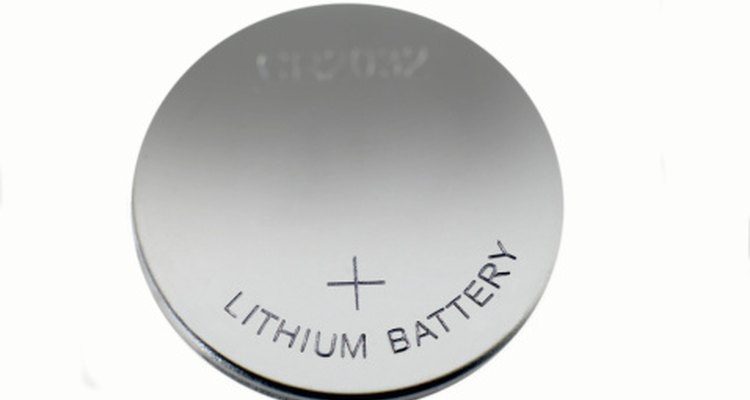
In the days of pocket vests, when men wore timepieces on chains, what kept the pocket watch going was Swiss mechanics. Spring-powered watches still are available today, but more common are battery-operated watches. Although most watch battery cells are interchangeable, if the manufacturer specifies one type, you may be compromising the integrity of the watch if you use another.
Alkaline
Among common watch batteries is the least costly, a 1.5-volt alkaline battery. It's often the starter battery in low-priced watches. It's not unusual for such a battery, also known as a button cell because of its size and shape, to run down within months of being installed. Until you replace it, you may experience inconsistent voltage that will affect the accuracy of your timepiece.
Lithium
The lithium battery is small but mighty, with a capacity of 3 volts -- the highest available -- and a lifespan of up to a decade when used in a low-drain watch. Although it will shorten its lifespan, the lithium battery also can be used in a watch with lights or other energy-draining features.
Mercury
The mercury watch battery, typically smaller than the lithium, has a capacity of 1.36 volts with an endurance comparable to that of the alkaline but with more consistent voltage. However, mercury as an element is highly toxic, so be sure to dispose of a used battery in a safe way. In some places, the mercury battery has been banned altogether.
Silver Oxide
The silver oxide battery is the most common type. It typically is smaller than the mercury and lasts about half as long. The 1.62-volt capacity cell shares the mercury's consistent voltage and is constructed in the same way. Its high energy-to-weight ratio means the battery should last a long time; however, silver content makes the silver oxide battery expensive to produce.
Solar
High-tech solar cells are fueled by light that reaches them through the watch face, so you never have to change the battery. Also, solar batteries do not contain any of the harmful chemicals found in regular batteries, so disposal is not a concern.
Related Articles

What Is the Difference Between Domestic ...

How Do Citizen Eco-Drive Watches Work?

How to Restart Citizen Eco-Drive Watches

The Advantages of a Wind Up Watch

How to Tell if a Waltham Watch is ...

How Does a Pocket Watch Work?

How to Set the Time on a Rolex Daytona

Guide to Replacing a Battery in a Timex ...

Kinetic Watches Vs. Eco-Drive Watches

The Advantages of Titanium Watches

Canned Salmon and Metal Toxins

How to Reset a Polar F6 that is Locked ...

How to Change the Battery in a Kenneth ...

How to Replace the Battery in an Omega ...

How to Charge a Casio G-Shock

How to Change the Battery in a Bulova ...

How to Get a Rado Watch Battery Replaced

How to Start a Seiko Kinetic

How to Change a Casio Waveceptor Battery

How to Remove the Batteries From Salter ...
Writer Bio
Maria D. Laso is a trilingual writer-editor with more than 25 years experience; she now freelances, teaches and coaches writers. She publishes two 'zines written by and for young women and has a Bachelor of Science degree in journalism from Northwestern University.
Photo Credits
Ryan McVay/Photodisc/Getty Images